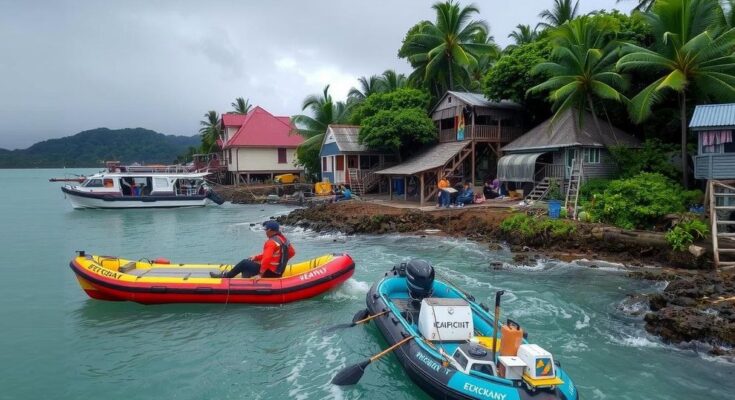A major rescue operation is in progress in Mayotte following Cyclone Chido, which has caused overwhelming damage with winds over 140 mph. The cyclone has devastated homes and essential infrastructure, particularly affecting the vulnerable populations. Initial relief flights have begun arriving, and French military personnel are aiding the efforts to assist the affected communities.
A significant rescue operation has commenced in Mayotte, a French island territory located off the southeast coast of Africa, following the devastation caused by Cyclone Chido. This cyclone, characterized by winds exceeding 140 miles per hour (225 kilometers per hour), has severely damaged infrastructure, including homes, power lines, roads, the main airport, and the local hospital. The storm has particularly affected the most disadvantaged communities, who reside in structurally fragile dwellings that have been largely destroyed. Although initial supply flights have delivered materials for temporary shelters, numerous individuals remain without essential resources, including food, clean water, electricity, and internet access. In response to this crisis, over 100 French soldiers are currently deployed for rescue efforts, with an additional 160 personnel expected to arrive soon. French President Emmanuel Macron is scheduled to convene an emergency meeting regarding the situation. Relief supplies and equipment are also being dispatched from Reunion Island, another French overseas territory.
Located approximately 5,000 miles from Paris, Mayotte is comprised of two primary islands—Grande-Terre and Petite-Terre—and has a population of around 321,000 residents. Despite its geographical distance, Mayotte is governed under the same laws as mainland France, as it is a French territory. The recent event marks the most severe cyclone to strike the region in over 90 years, with Cyclone Chido emerging as a formidable tropical storm typical to the South Pacific and Indian Ocean. Cyclones generally occur between December and March, which coincides with the cyclone season in this area. Understanding the implications of this disaster requires awareness of Mayotte’s socio-economic conditions, which exacerbate the effects of such meteorological events.
In summary, the rescue operation in Mayotte is a critical response to the substantial destruction caused by Cyclone Chido, which has left the poor and vulnerable populations in dire situations. While the initial stages of relief efforts are underway, the ongoing need for essential supplies and infrastructure repair is evident. The involvement of the French military and government signals a coordinated response to address the aftermath of this unprecedented cyclone. Continued monitoring and support will be essential in the recovery process for this island territory.
Original Source: www.bbc.co.uk




